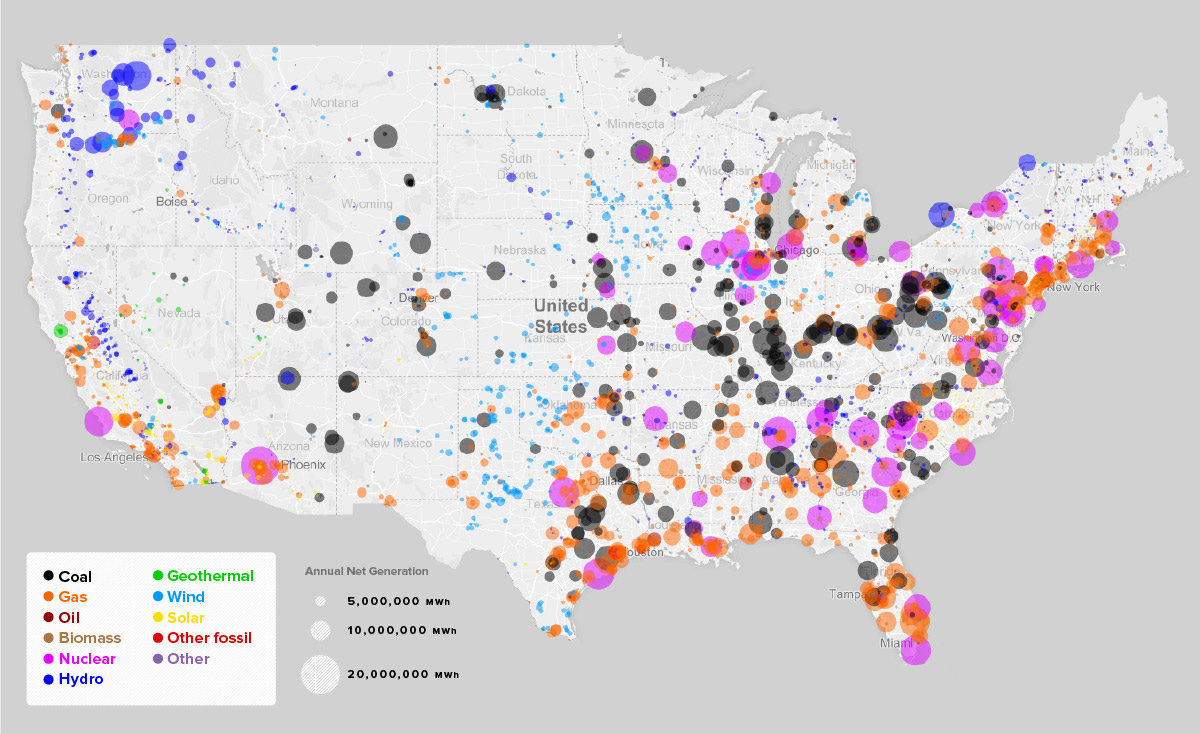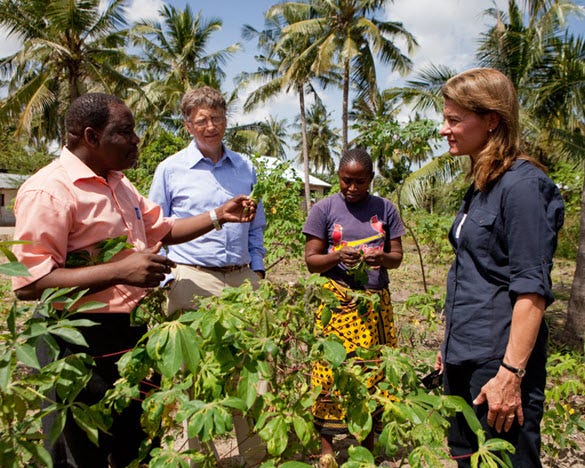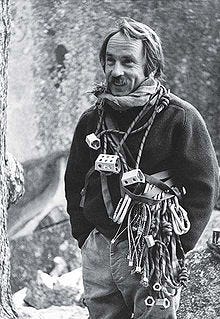Weekly Dose of Optimism #12
Goalkeepers, Child Poverty, The Merge, Repurposed Power Plants, Giving It All Away
Come for the Optimism, stay for the in-depth analyses of tech companies and trends:
Hi friends 👋,
Happy Friday and welcome to our 12th Weekly Dose of Optimism. We’re starting to get back in the flow of things with regular Monday posts, occasional Thursday posts to highlight companies and founders we are excited about, and the Weekly Dose of Optimism each Friday.
We’d appreciate your feedback, specifically, on the Weekly Dose of Optimism:
Do you enjoy reading the Weekly Dose of Optimism? Yes, Meh, No
Today’s Weekly Dose of Optimism is brought to you by… Notion
Not Boring runs on Notion — note taking, business planning, and general idea organization all live in the app. Notion can sometimes be hard to describe — it’s more than a doc, or a table, or a homepage. For us, it’s just our Workspace.
Whether you’re on an enterprise team, run a small business, or are a solo operator, Notion scales with your needs. At this point, not having Notion is kind of like not having Slack.
If you’re not using Notion today or you kind of are but are thinking of upgrading plans, check it out below. The product keeps getting better, and faster. Signing up through the Not Boring link supports the Weekly Dose of Optimism.
(1) Goalkeepers 2022: The Future of Progress
From the Bill and Melinda Gates Foundation
Will humanity show how it can accomplish what everyone previously thought impossible and innovate our way out of a deep hole?
Each year, the Bill and Melinda Gates Foundation publishes its “Goalkeepers” report which attempts to answer the question, “How is the world doing?” With a microchip inside of everyone who took a COVID vaccine, no one is in a better position to answer that question than Gates.
Seven years ago, the foundation and 193 countries agreed on a set of 2030 objectives on topics ranging from poverty to gender equality, and this annual report aims to provide data-driven updates on these goals. The upshot of this year’s report is this: things are generally getting better (and in the context of history, have never been better!), but we have fallen significantly behind on the necessary pace of progress to achieve the 2030 goals.
The pandemic diverted resources, women’s rights have suffered due to changes of power in the middle east and law changes in the US, and the war in Ukraine has kicked off a potential food crisis. All of these things — which were individually hard to predict and impossible to predict in combination — have slowed progress against the 2030 objectives.
The foundation now predicts we’ll need to increase the pace of progress by 5x(!) to achieve the objectives on schedule. But it’s not writing off success just yet. In the same way that it was impossible to predict these sidetracking events, its impossible to predict human ingenuity — innovative breakthroughs and discoveries that could get us back on track.
The full report (linked above) is worth exploring, but if you want a quick download, Derek Thompson had on Gates for a quick summary in his pod below:
(2) America's successful war on poverty
Felix Salmon for Axios
While much of the Gates Foundation’s work on poverty is focused on efforts abroad, there have been significant improvements over the last decade in the US. On Tuesday, the US Census Bureau released its 2021 report on poverty, inequality, and health insurance coverage which highlighted a dramatic decrease in child poverty in 2021. The decrease was due, in part, to COVID-era child tax credits which contributed to 3.4 million American children being lifted out of poverty between 2020 and 2021. While such dramatic decreases are unlikely to repeat — in fact, there may be a rare increase in 2022 — the general downwards slope of child poverty since 2012 is encouraging. In the past decade, nearly 10 million (the combined total populations of NYC + Philadelphia) American children have been lifted out of poverty.
(3) The Ethereum Merge Is Done, Opening a New Era for the Second-Biggest Blockchain
Sam Kessler for Coinlist
Ethereum should now consume 99.9% or so less energy. It's like Finland has suddenly shut off its power grid, according to one estimate. Ethereum’s developers say the upgrade will make the network – which houses a $60 billion ecosystem of cryptocurrency exchanges, lending companies, non-fungible token (NFT) marketplaces and other apps – more secure and scalable, too.

It happened. WMI. After almost half a decade of delays, the Ethereum Merge was completed on Thursday. Without getting too into the nitty-gritty (we went way, way deep on Ethereum in Own the Internet for those curious), the highly anticipated Merge moves the Ethereum blockchain from a “proof-of-work” to “proof-of-stake” consensus mechanism. While the merge doesn’t solve all of Ethereum’s issues — namely, it doesn’t make it faster or cheaper (that’s for future planned upgrades) — it does reduce the blockchain’s energy consumption by ~99.9% and lets owners stake their ETH to generate a yield in exchange for maintaining the ledger.
Perhaps more importantly, though, is the fact that it happened. The Merge was held up for years due to technical complexity, coordination difficulties, and politics — but it finally happened. One of the most consequential systems upgrades in history went through without a hitch. According to Vitalik, the Merge is just the beginning:
"To me, the Merge just symbolizes the difference between early stage Ethereum, and the Ethereum we've always wanted ... to become. So let's go build out all of the other parts of this ecosystem and turn Ethereum into what we want it to be."
(4) DOE Report Finds Hundreds of Retiring Coal Plant Sites Could Convert to Nuclear
From the Office of Nuclear Energy
The study investigated the benefits and challenges of converting retiring coal plant sites into nuclear plant sites. After screening recently retired and active coal plant sites, the study team identified 157 retired coal plant sites and 237 operating coal plant sites as potential candidates for a coal-to-nuclear transition. Of these sites, the team found that 80% are good candidates to host advanced reactors smaller than the gigawatt scale.

It’s become increasingly apparent (or at least politically more acceptable) that nuclear energy is going to play a big part in achieving the U.S.’ emissions goals. As we wrote about in “Working Harder and Smarter,” if we’re going to realize the full potential of the Abundance Renaissance, we are going to need a lot more energy.
According to the Department of Energy’s report, the coal-to-nuclear transition will not only make our energy grid cleaner, but unlock new building opportunities, jobs and tax revenues. But we won’t need to start from scratch — much of our existing infrastructure can repurposed to power this next wave of energy production. The potential benefits are staggering. From the report:
Greenhouse gas emissions in a region could fall by 86% when nuclear power plants replace large coal plants, which is equivalent to taking more than 500,000 gasoline-powered passenger vehicles off the roads.
For each conversion, jobs in the region could increase by more than 650 permanent positions.
Long-term job impacts could lead to additional annual economic activity of $275 million, implying an increase of 92% tax revenue for the local county when compared to the operating coal power.
The reuse of coal infrastructure for advanced nuclear reactors could also reduce costs for developing new nuclear technology, saving from 15% to 35% in construction costs.
IT’S TIME TO CONVERT.
(5) Billionaire No More: Patagonia Founder Gives Away the Company
David Gelles for The New York Times
Rather than selling the company or taking it public, Mr. Chouinard, his wife and two adult children have transferred their ownership of Patagonia, valued at about $3 billion, to a specially designed trust and a nonprofit organization. They were created to preserve the company’s independence and ensure that all of its profits — some $100 million a year — are used to combat climate change and protect undeveloped land around the globe.
In a move that many Patagonia vest-wearing types may not agree with, Yvon Chouinard, has essentially given away his $3 billion ($100 million per year cash flow) apparel brand to a climate-focused non-profit. And, believe it or not, according to The New York Times, he didn’t do it to take advantage of any kind of tax loophole.
Chouniard’s motivation seems two-fold:
1) Influence a new form of “capitalism x philanthropy”
2) Give away as much of his personal wealth to fighting the impacts of climate change
On the first motivation, we could lay out all the reasons why this won’t work and share lessons on incentives and capitalism — but fuck it, if Chouinard wants to give away his fortune to test out this new model, more power to him. What’s the worst that could happen? The experiment fails, Patagonia slowly declines, and we’re all short one luxury outdoor clothing brand?
But the upside case for Patagonia here is that there is such brand x mission alignment that any of the negative side effects of missing personal financial incentives are offset by the customer loyalty they win from making such a move. Patagonia’s most important customers will likely now spend more at Patagonia over the course of their lifetime. Let’s say that the lack of financial incentive means that Patagonia will be managed 20% worse over the next ten years…I’d bet, though, that this move increases CLTV by greater than 20% over that same period. This was a brilliant marketing move, intentional or not.
Bonus: Adobe Acquires Figma for $20 Billion
Not Boring wouldn’t be Not Boring without Figma. It’s one of my favorite pieces of software because it turned me from someone who never thought of myself as visually creative into someone who loves making the images that spice up this newsletter.
Particularly in a market like this, it’s nice to see a monster acquisition — the largest of a private software company in history — happen. It’s a win for the good people, and will create a new batch of design-focused angel investors, including CEO Dylan Field, who can help build the next wave of beautifully designed, magical products. The internet is about to get more delightful.
Humans are pulling off some pretty incredible things every week. Whenever you find examples, share them here and we’ll feature some in the newsletter.
Have a great weekend and look out for a magical post in your inbox on Monday morning.
Thanks for reading,
Packy






Love what you're doing, but this sentence 'With a microchip inside of everyone who took a COVID vaccine, no one is in a better position to answer that question than Gates.' could have used a disclaimer or something.
@packy I always comment how much I enjoy this series but today especially resonated. I had my first visceral reaction to these stories as I caught myself smiling by the time I made it to the Patagonia story!